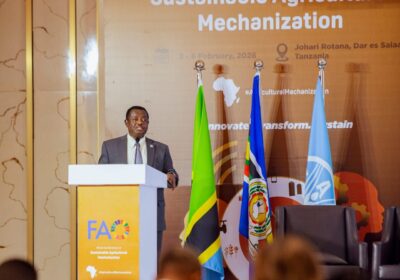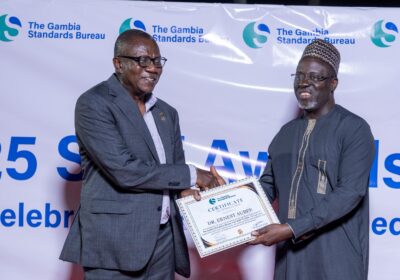Bi- National Commission Meeting 2025: Nigeria, Germany Deepen Strategic Partnership to Drive Energy, Trade, Sustainable Development, Others.
By Raymond Enoch
In this exclusive story Paradigm News International Nigeria, has been following closely the German–Nigeria Bi-National Commission discussions. We bring you an in-depth look at what the partnership entails — and the grand benefits it holds for both countries, as well as for the economic policy direction of President Bola Ahmed Tinubu’s administration.
Nigeria and Germany have reaffirmed their longstanding diplomatic and economic relations with the launch of the 5th Nigeria–Germany Bi-National Commission (BNC) 2025 held in Berlin under the theme “Strategic Partnership for a Sustainable Future.” The high-level meeting, co-chaired by Nigeria’s Minister of Foreign Affairs, Ambassador Yusuf Maitama Tuggar, OON, and Germany’s Foreign Minister, Hon. Johann Wadephul, marks a renewed chapter in bilateral cooperation aimed at strengthening ties in energy, trade, migration, innovation, culture, and security.
According to the Ministry of Foreign Affairs, the 2025 BNC seeks to advance Nigeria’s strategic partnership with Germany while reinforcing Nigeria’s leadership role in West Africa’s economic transformation and global diplomacy. The commission builds on years of sustained engagement between both nations and aligns with ECOWAS Vision 2050 and Nigeria’s broader foreign policy priorities.
Under the 2025 framework, both countries identified five priority sectors for collaboration — energy and climate, trade and investment, migration and skills, culture and education, and security and policy. Germany pledged a €20 million renewable energy grant, with both nations committing to launch Nigeria’s Hydrogen Strategy and fast-track the Presidential Power Initiative to deliver 4,000MW of electricity. Efforts are also underway to expand bilateral trade beyond ₦3 trillion by 2026, host the German–Nigerian Business Forum, and conclude a new Trade and Economic Cooperation Memorandum of Understanding.
The partnership further aims to strengthen legal migration frameworks and align Nigeria’s skilled workforce with Germany’s seven-million-person labour gap by 2035. In the area of culture and education, Germany reaffirmed its commitment to restitute 1,130 Benin artefacts and promote cultural and academic exchanges through partnerships involving MOWAA, universities, and Nigeria’s creative industries. On security and policy, both countries agreed to renew the Defence Memorandum of Understanding to enhance cooperation on maritime security and stability in the Sahel region.
The 2025 BNC builds on a series of milestone diplomatic engagements, including Chancellor Olaf Scholz’s visit to Abuja in 2023, which saw the signing of Trade and Energy MoUs; President Bola Ahmed Tinubu’s 2023 visit to Berlin, where Nigeria secured $500 million in German investment pledges for renewable energy; and President Frank-Walter Steinmeier’s 2024 visit to Nigeria, which strengthened defence and cultural cooperation. It also reinforces ongoing dialogue with the incoming German administration under Chancellor Friedrich Merz, ensuring Nigeria remains central to Germany’s Africa policy, particularly in the areas of energy, migration, and trade.
Germany is Nigeria’s second-largest trading partner in Sub-Saharan Africa, with an annual trade volume of €3 billion in 2024 and more than 90 German companies operating in Nigeria. In 2023, Germany committed €500 million under the G20 Compact with Africa for renewable energy investments in Nigeria. The Bi-National Commission highlights the growing importance of energy modernization, skilled labour mobility, cultural restitution, and sustainable economic growth — key priorities under Nigeria’s Tinubu 4D Doctrine: Democracy, Development, Demography, and Diaspora.
Speaking at the event, Ambassador Tuggar emphasized that the renewed partnership exemplifies Nigeria’s foreign policy direction, which prioritizes innovation, diplomacy, and global partnerships that deliver tangible benefits to the Nigerian people. He added that the collaboration underscores Nigeria’s readiness to leverage its demographic potential, energy resources, and strategic location to drive inclusive growth and regional stability.
As the outcomes of the 2025 Bi-National Commission unfold, both nations are poised to translate these high-level commitments into actionable projects that will redefine Nigeria–Germany relations and strengthen their shared pursuit of a sustainable and prosperous future.









